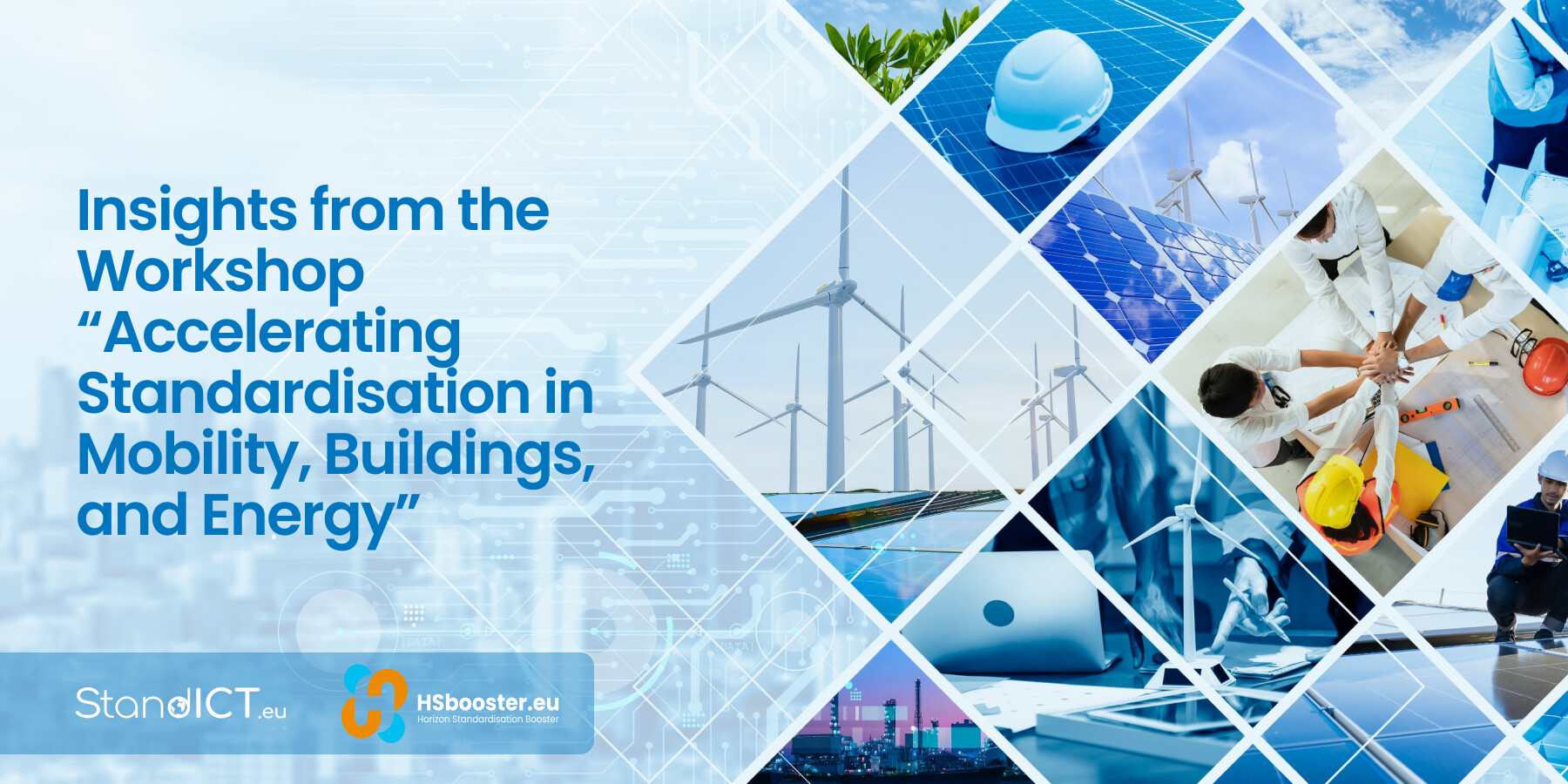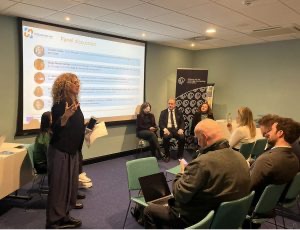
On January 31, a workshop organised by AIOTI in collaboration with the European Commission's DG Connect, IoT Unit, and supported by the HSBooster.eu project, took place to address the acceleration of standardisation across the domains of mobility, buildings, and energy. This workshop dealt with themes that align with the European Commission's strategy to achieve net-zero emissions through clean electrification, highlighting the pivotal role of open standards in facilitating the transition towards a green and digital economy.
The workshop was opened by Rolf Riemenschneider, Head of Sector IoT at the European Commission, who highlighted the importance of integration of diverse ecosystems through multi-standard interfaces and the facilitation of seamless data flows within the energy domain, as this sector acts as a connector across mobility and building automation. For example, energy is critical in powering electric vehicles (EVs), thus connecting the mobility sector with renewable energy sources. Similarly, in building automation, energy efficiency and management systems rely on smart grids to optimise energy use and support sustainable practices. All these sectors are ultimately crucial for advancing Europe's sustainability goals.
 The event consisted of three sections and a final fireside chat. The first session focussed on policy perspectives, while the second one presented business solutions and challenges. The third panel focussed on "Driving Standardisation". This was introduced and moderated by Silvana Muscella from Trust-IT Services who gave a presentation of StandICT.eu and HSbooster.eu opportunities for standardisation experts and projects. The panel brought together industry experts and representatives from standardisation initiatives to explore the current landscape of industrial associations, their engagement with Standard Development Organisations (SDOs), and strategies for expediting the standardisation process.
The event consisted of three sections and a final fireside chat. The first session focussed on policy perspectives, while the second one presented business solutions and challenges. The third panel focussed on "Driving Standardisation". This was introduced and moderated by Silvana Muscella from Trust-IT Services who gave a presentation of StandICT.eu and HSbooster.eu opportunities for standardisation experts and projects. The panel brought together industry experts and representatives from standardisation initiatives to explore the current landscape of industrial associations, their engagement with Standard Development Organisations (SDOs), and strategies for expediting the standardisation process.
The panel featured Marga Martin Sanchez, Programme Manager at the European Association for Data and Cloud AISBL, Eusebiu Catana, Senior Manager in the Innovation and Deployment Department at ERTICO-ITS Europe, and Dr. Aikaterini Poustourli, Scientific and Technical Officer at the International Hellenic University. These panellists, supported by HSbooster.eu and included in HSbooster.eu pool of experts, shared insights on the significance of standardisation efforts within their respective fields. Additionally, the panel discussion featured contributions from Reyna Ubeda, Project Officer at the International Telecommunication Union’s Standardisation Bureau, and Tanya Suarez from BluSpecs, AIOTI Management Board Member and coordinator of the recently kicked-off INSTAR project, further enriching the dialogue with their expertise and perspectives on standardisation and interoperability across these interconnected sectors.
Key Themes from the Standardisation Panel
More precisely the following key points were discussed during the standardisation panel:
- Interoperability across sectors: The discussion emphasised the necessity of developing horizontal and cross-sector interoperability standards. Such standards are essential for ensuring effective communication within and between intelligent transport and energy systems, promoting the integration of renewable energy sources, and enhancing the efficiency of electric vehicle charging infrastructures.
- Active and early engagement with standardisation bodies: There was a strong emphasis on the significance of projects and Small and Medium-sized Enterprises (SMEs) actively engaging with standardisation bodies at the early stages of project development. This proactive involvement allows for a direct contribution to the shaping and testing of emerging standards, leveraging existing frameworks to accelerate the adoption of innovative solutions, such as CEN Workshop Agreements, thereby streamlining the path to market readiness.
- Global standards for broader applicability: The panel highlighted the importance of integrating global and international standards into the initial phases of project planning. This approach ensures that the developed solutions are versatile and potentially applicable beyond the European Union. This approach helps establishing a sustainable, interoperable infrastructure that aligns with international best practices and facilitates global market access.
Overall, the workshop highlighted the collective effort required to advance standardisation in critical sectors for Europe's green transformation. By fostering collaboration between different domains, industry stakeholders, and standardisation bodies, the event laid the groundwork for the implementation of upcoming EU-funded projects that will work on pilots on emerging Smart IoT Platforms and decentralised intelligence.
Are you a standards expert or involved in a project that would like to make an impact via standardisation? HSBooster.eu can help you, offering free support to EU-funded projects to enhance their engagement with standardisation thanks to the coaching of standardisation experts who are paid to deliver ad-hoc consultancies to applicant projects.